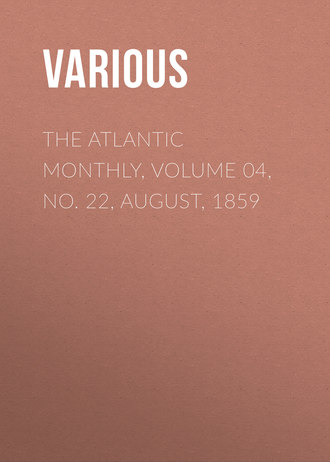The Atlantic Monthly, Volume 04, No. 22, August, 1859
 полная версия
полная версияThe Atlantic Monthly, Volume 04, No. 22, August, 1859
Жанр: учебная и научная литературазарубежная старинная литературазарубежная образовательная литературазнания и навыки
Язык: Английский
Год издания: 2019
Добавлена:
Настройки чтения
Размер шрифта
Высота строк
Поля









